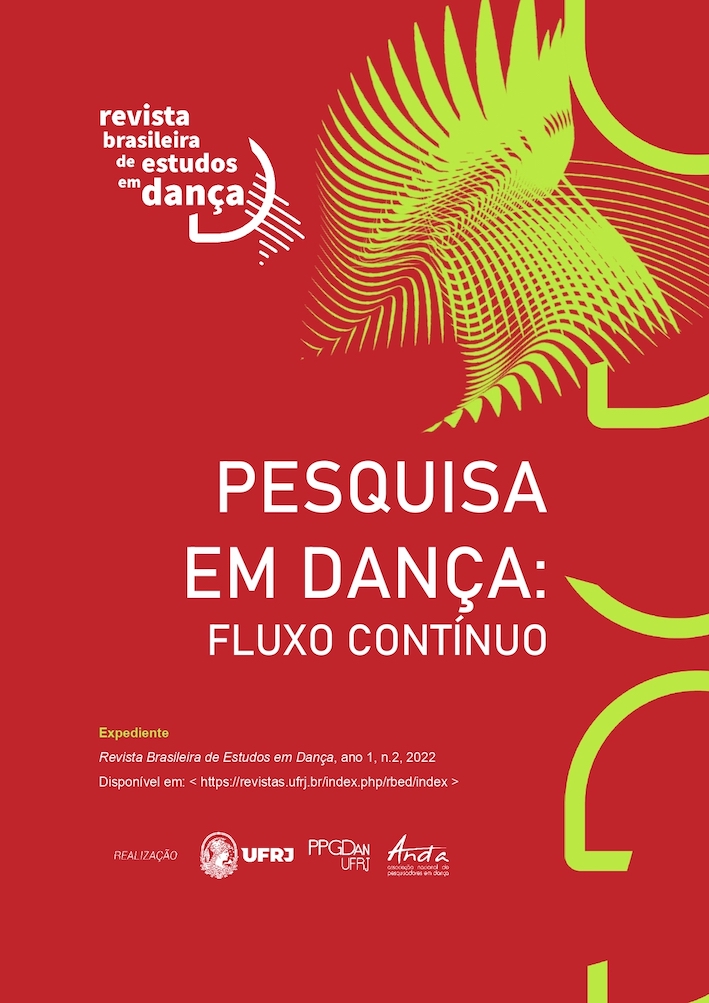Black dances in the land of drizzle
stories from quilombos.
DOI:
https://doi.org/10.58786/rbed.2022.v2.n2.55299Abstract
The work presents the trajectory of the sambista and artist Ednei Pedro Mariano, who has been working in carnival parades since the end of the 1960s. Nascimento claims that they are transatlantic terri-tories that preserve and gather knowledge fromquilombos. Mariano, in addition to witnessing the transformations that took place throughout the years, is also the protagonist of these transforma-tions. As a methodology, specialized bibliography, observation of records of carnival parades in digital media and interviews with the artist were used. The article is part of an ongoing research on the histories of black dances in the city of São Paulo.
Downloads
Download data is not yet available.
Downloads
Published
2022-12-30 — Updated on 2023-11-30
Versions
- 2023-11-30 (2)
- 2022-12-30 (1)
How to Cite
DONIZETI MANZINI, Yaskara. Black dances in the land of drizzle: stories from quilombos. Brazilian Journal of Dance Research, [S. l.], v. 1, n. 2, p. 122–145, 2023. DOI: 10.58786/rbed.2022.v2.n2.55299. Disponível em: https://revistas.ufrj.br/index.php/rbed/article/view/55299. Acesso em: 21 dec. 2025.
Issue
Section
Artigos
License
Authors who publish in the Revista Brasileira de Estudos em Dança are
responsible for the content of signed articles and retain copyright.
They grant the journal the right of first publication with the work simultaneously
licensed under the Creative Commons Attribution-NonCommercial 4.0 License
(Open Archives Initiative - OAI). This feature, used for open-access journals,
allows sharing work for non-commercial purposes and acknowledges
authorship. If the text is later published in another vehicle, the author
must inform that it was initially published as an article in the Revista Brasileira
de Estudos em Dança. Therefore, even if the journal owns the first publication,
authors are entitled to publish their work in institutional repositories or on
their personal pages, even if the editorial process has not been completed.
The journal reserves the right to make normative, orthographic, and grammatical changes to maintain the language standard, respecting the authorial style.

